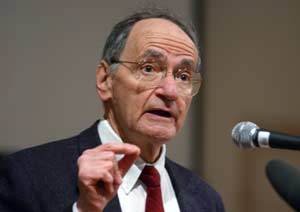LOOKING AHEAD TO OUR “HOUSE OF LEARNING” – OUR LEHRHAUS DAY
The new year has begun and we were again blessed with the beautiful voices of choir and Cantor Heller and, hopefully, some uplift from the words shared from the bimah. The challenges before us are many. The time to do teshuvah (repentance), to change for the better, to enhance Jewish life, to enrich our souls, to commit ourselves to our congregation and synagogue still further and to renew the loving bonds we have with family, friends and everyone, is more imperative than ever. I hope that the upcoming Kol Nidre and Yom Kippur will be a time of uplift and reconnection with ourselves, our community, and God.
Unique History: As you all know, this year has marked Belsize Square’s 75th anniversary. Founded in 1939, with the first service held on Friday evening, 24 March, we have become a congregation recognised here and abroad. Our history is unique but we are also known for our warmth, broad embrace and contribution of talent in major fields of endeavour. Where we are “coming of age” and beginning to make our mark is in Jewish education, learning and scholarship.
We have, within our community, scholars of Jewish history, ancient and modern, as well as specialists in other fields and a bustling weekly Jewish study group. We especially appreciated the contributions of our guest speaker, Rabbi Dr Ismar Schorsch, former Chancellor of the Jewish Theological Seminary, at our celebration in March.
To highlight our commitment to higher Jewish education under the guidance of our Adult Education Chairperson, Dr Claire W alford, Belsize Square Synagogue is hosting its first Lehrhaus (House of Learning) Day on Sunday 9
November. I hope you will all take advantage of this incredible offering of Jewish learning, discussion and study. Registration is from 9.30am, and the day will be split into four periods, starting at 10.00am. The full programme is:
- Professor Tessa Rajak: Why do we read the Torah in Hebrew?
- Dr Annette Boeckler: One prayer book, four continents.
- Glenda Abramson (mother of our Co- Chair, John Abramson): Great Works in Holocaust Representation: Todesfuge (Death Fugue by Paul Celan) and Maus (graphic novel by Art Spiegelman).
- Rabbi Danny Rich (Chief Executive of the Liberal Movement): Israel Mattuck: The Inspirational Voice of Liberal Judaism.
- Rabbi Markus Lange: Dramatic Dialogue in Jewish Prayer.
- Rabbi Stuart Altshuler: Kashrut: Biblical and Ethical Basis for the Dietary Laws, and The Question of Theodicy (Why do bad things happen to good people?)
- Cantor Paul Heller: The God Particle, and the Siddur’s Geography.
- Dr Bea Lewkowicz: Our Heart Belongs to Belsize Square: Belonging, Community and Religion among German Jewish refugees.
- Hilary Curtis: Jubilee: Anniversaries and Jewish Values.
- Neil Nerva: German Jewry.
- Michael Horowitz: Spinoza: Still a Heretic?
- Dr Ben Barkow (Director of the Wiener Library): Kristallnacht and the Holocaust.
- Other sessions will be led by Rabbi Jonathan Wittenberg (Senior Rabbi of Masorti Judaism UK), Larry Miller and Andrew Levy.
The day will culminate in a panel discussion, What is the future of Judaism and of the Jewish people? led by three rabbis – Danny Rich, Jonathan Wittenberg and myself – and Israel’s Deputy Ambassador, Eitan Naeh.
Lunch, all-day coffee and cake and a full children’s programme will be provided. The day will end at 5.15pm.
There will be further information nearer the time but you have a good picture now of its seriousness and fullness. This will be another event to make our community shine and bask in the glow of yet another tremendous achievement, this time in the area of Jewish learning.
The time to register is now! Advance booking is £10 for members and non-members alike. Booking on the day will be £15. Bring your friends and associates from around the community. Children are free. Please register online via our website or call the Synagogue Office.
An Educated Community: The reason the rabbis taught us that Talmud Torah k’neged kulam (the study of Torah is equal to all of them – the other Mitzvot) is that they knew that an educated community would last forever. That is the secret of our Jewish survival. So come and join us on Sunday 9 November!
Until then, my best wishes for a G’mar Hatimah Tovah, (a good seal or verdict) as a fitting and uplifting end to Yom Kippur, and for Mo’adim l’Simchah, a joyous and wonderful Succot, Shemini Atzeret and Simchat Torah for you and your loved ones.
Bivrachah (with blessing)
Rabbi Altshuler



